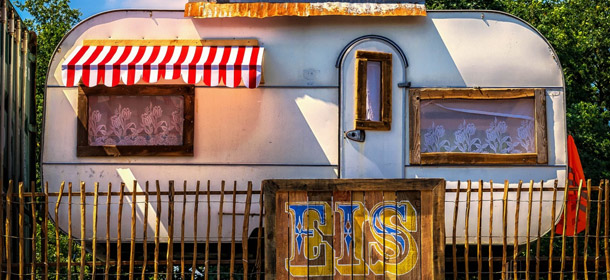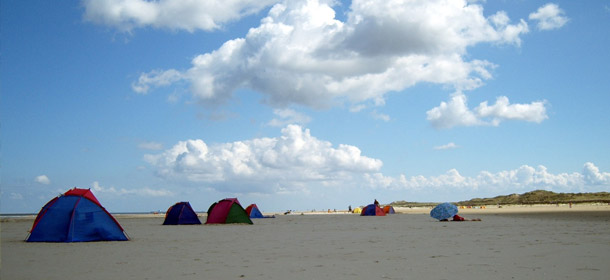When Camping Came to the North
Yes – we camp! As interested as the North Germans are in conquering and marveling at foreign lands, they are nonetheless reluctant to actually leave home. The invention of camping arrived at just the right moment. During the 1960s, camping experienced its genuine – in northern Germany as well. On the North and Baltic Seas, along the Elbe Weser, and Ems Rivers, on Plön Lake, on Schaalsee, but also on the Brocken in the Harz Mountains – campgrounds were set up throughout the north. As a result, trips to northern North Germany, in particular to the lakes, now became affordable for many. Whether in summer or winter, in a tent, in a camper, or caravan – over the past 60 years, camping in northern Germany has experienced enormous change. Whether long-term camping, eco-camping, or glamping – "When Camping came to the North" narrates more than 60 years of a travel phenomenon that has meanwhile liberated itself from its formerly grungy image to strike out along new paths in northern Germany. By featuring various northern German camping grounds, along with some of the campers who have made themselves 'at home' here for years or even decades, we embark on a journey through the recent history of camping in northern Germany. From camping grounds along the coastline of the Wadden Sea in East Friesland/Lower Saxony, on a lake on Schleswig-Holstein, on the Elbe River, in wintertime on the Brocken in the Harz Mountains, and all the way to sites along the Baltic coastline in Mecklenburg-Western Pomerania. We learn how camping customs have changed, and about the demands made by more recent guests, but also enjoy amusing anecdotes from the 1950s and 60s that offer a picture of a time when northern Germany conquered its camping territory.



